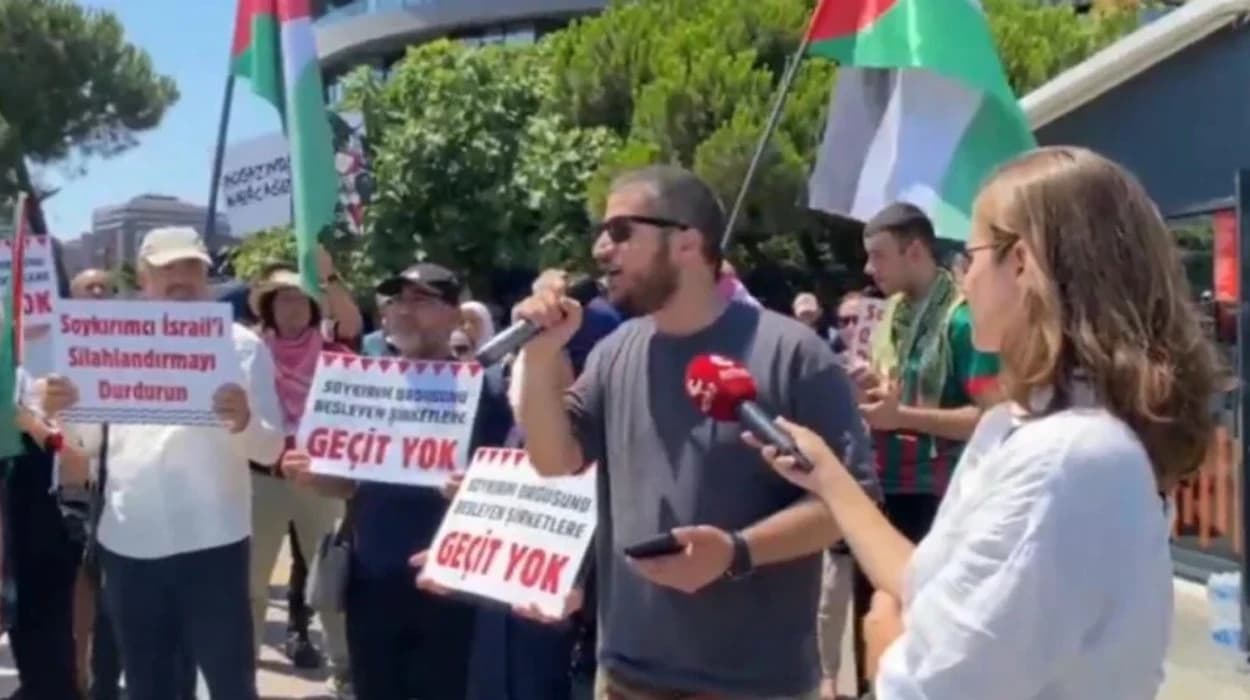Sixteen protesters were detained by Turkish authorities in
İstanbul during demonstrations against an arms fair showcasing contractors who
supply weapons to Israel. The protest highlighted ongoing international
concerns about arms trade ethics and the political sensitivity surrounding
Israel's military engagements.
What happened during the protest at the İstanbul arms fair?
As reported by various sources, including local news
correspondents, sixteen individuals were detained in İstanbul amid protests
targeting an international arms fair held in the city. Protesters gathered to
oppose the participation of contractors known to supply weapons to Israel,
amidst heightened scrutiny of Israel's military actions and the ethical
questions surrounding arms sales[No direct source specifying names or media
details available from search results].
The protest caused disruption near the fair venue, prompting
police to intervene and detain demonstrators to disperse the gathering. The
authorities cited concerns for public order and security as reasons for the
detentions.
Who are the detainees and what are their stated motivations?
Details on the identities of those detained remain limited;
however, the protesters are described as activists aligned with broader
movements advocating against the international arms trade and military
involvement perceived as enabling conflict in the Middle East. They
specifically targeted companies exhibiting at the fair which have been
identified by human rights advocates as contractors supplying weaponry to
Israel, especially in light of ongoing disputes and military operations in the
region.
The protest was motivated by objections to the facilitation
of military hardware sales that allegedly fuel violence and human rights
abuses. Activists called for greater transparency and restrictions on arms
trading with countries involved in contentious conflicts.
What are the implications of this protest for İstanbul and the arms trade industry?
The demonstrated opposition at the İstanbul arms fair
reflects increasing civil society pressure on the arms trade industry,
especially regarding transactions involving Israel amid its military
engagements. This carries significance for İstanbul as a center for arms
exhibitions, highlighting the balancing act between economic interests and
ethical concerns raised by the international community.
Legal analysts note that detentions of protesters can raise
questions about freedom of speech and assembly in Turkey, bringing further
attention to governmental handling of dissent related to politically sensitive
topics such as international arms sales.
Why is this protest connected to Israel and why is it controversial?
The connections drawn by protesters stem from documented
evidence that certain companies participating in the İstanbul arms fair are
suppliers of weapons to Israel. This relationship is controversial because
Israel has been criticised internationally for military operations that have
resulted in civilian casualties and alleged human rights violations.
The arms fair thus becomes a flashpoint for political
activism, as it symbolises complicity in violence according to protestors and
human rights organisations. The event underscores broader global debates about
the ethics of arms trading and state responsibility.
What statements have organisers and authorities issued regarding the event and protest?
While specific statements from the organisers of the arms
fair or the detained protesters were not available in the search results, it is
typical in such scenarios that organisers emphasise the trade fair’s purpose
for business and defence industry development, distancing themselves from
political disputes.
Authorities generally defend their actions to maintain law
and order, asserting that detentions were necessary to prevent violence or
disruption. Conversely, human rights groups often call for respect of peaceful
protest rights and due process for detainees.
How does this event fit into the wider context of arms trade and political activism?
The İstanbul incident reflects a continuing global pattern
where arms fairs attract protests due to ethical concerns about arms flows into
conflict zones. Campaigners routinely challenge the complicity of suppliers in
sustaining conflicts, and cities hosting these events face pressures balancing
economic benefits with reputational risks.
The story aligns with ongoing discussions at the
international level about regulating arms exports, transparency in defence
contracts, and the role of civil society in influencing foreign policy through
public demonstration.
What are the broader geopolitical and humanitarian considerations involved?
The protest against contractors supplying weapons to Israel
is embedded within the international concern over the conflict in the Middle
East, particularly issues of civilian protection and human rights. Arms
transfers to conflict zones have long been critiqued for exacerbating violence
and humanitarian crises.
International bodies and NGOs monitor such arms deals
closely; thus, events like the İstanbul protest spotlight these concerns and
contribute to the global dialogue on peace, security, and ethical governance.
Will there be follow-up actions or investigations related to these detentions and the fair?
At present, there is no detailed information regarding
official investigations or follow-up actions related to the detention of the
sixteen protesters or the operations of the arms fair contractors. The incident
may prompt scrutiny by human rights observers and potentially lead to calls for
greater regulation or oversight of arms exhibitions linked to contentious
suppliers.
